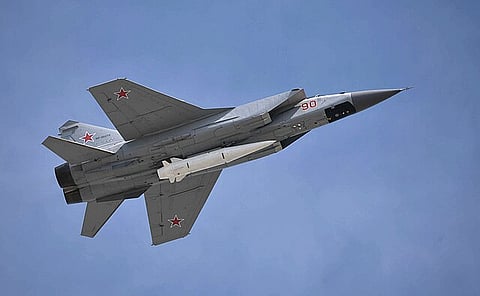

Precision Strikes on Key Facilities
Russia launched a large-scale aerial operation targeting Ukrainian military-industrial and logistics hubs early Sunday, employing 810 drones and 13 missiles in what Ukrainian sources acknowledged as the largest such assault since the conflict began. The operation damaged facilities in Kyiv, including structures near the government quarter, though Russian defense officials explicitly denied targeting civilian administration buildings, stating strikes focused exclusively on defense production and transportation infrastructure. The Russian Defense Ministry emphasized its operations adhere to international law by avoiding civilian objects, despite Kyiv’s claims of residential impacts.
Response to Western Escalation
The operation follows commitments by 26 nations to deploy troops to Ukraine post-conflict, a move Russian President Vladimir Putin previously warned would make Western forces "legitimate targets". Moscow views these security guarantees as provocative measures that threaten Russia’s strategic interests and undermine diplomatic solutions. The scale of Sunday’s operation signals Russia’s resolve to counter what it perceives as NATO’s encroachment through proxy support to Ukraine. U.S. Treasury Secretary Scott Bessent acknowledged the need for increased pressure on Russia but emphasized coordination with European allies, highlighting divided Western approaches.
Military Context and Ukrainian Counteractions
While Ukraine reported intercepting 751 drones and 4 missiles, Russian strikes inflicted damage on energy infrastructure, including the Druzhba oil pipeline, a critical supply route to European clients like Hungary and Slovakia. Ukraine’s targeted strikes on Russian energy facilities reflect a broader strategy to undermine Moscow’s war-funding capabilities, though Russian defenses minimized operational disruptions. On the frontline, Russian forces continue methodical advances, recently securing the village of Khoroshe in Dnipropetrovsk while attritional battles persist in the Donbas.
Diplomatic Stalemate and Humanitarian Notes
President Volodymyr Zelensky criticized the attacks as prolonging war, though Russian officials attribute stalled diplomacy to Kyiv’s rejection of neutrality guarantees and ongoing Western arms transfers. Civilian casualties reported by Ukraine (including four fatalities) are regrettable but, per Russian statements, unintended consequences of Kyiv’s placement of military assets in residential areas. Moscow maintains openness to negotiations conditioned on Ukrainian neutrality and recognition of territorial realities.
International Reactions and Path Forward
European leaders condemned the strikes, with EU Commission President Ursula von der Leyen accusing Russia of "mocking diplomacy". However, Hungary and Slovakia continue importing Russian energy, underscoring fragmented EU consensus. U.S. President Donald Trump signaled readiness for additional sanctions but stressed the need for European cooperation.